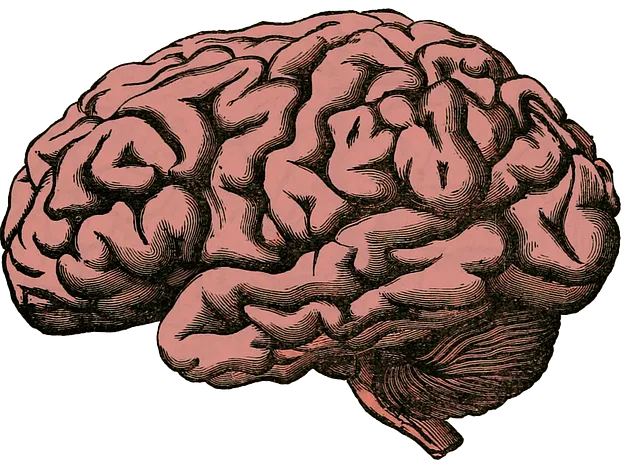The Northglenn Kaiser Permanente Guide to Crisis Intervention equips individuals with tools for emotional distress management, promoting resilience and long-term well-being. It emphasizes behavioral health as a cornerstone, offering resources like Stress Management Workshops and Confidence Boosting initiatives. By providing immediate support through their dedicated behavioral health number, they empower people in crisis, assess risks, and facilitate specialized care. Safety planning, evidence-based techniques, and post-crisis recovery strategies further enhance mental well-being within the Northglenn community, underscoring their commitment to holistic behavioral health support accessible via their vital phone number.
“In times of crisis, swift and effective intervention can make a world of difference. Northglenn Kaiser Permanente offers invaluable guidance through its comprehensive crisis intervention strategies. This article delves into essential aspects of managing emergencies, leveraging the expertise of professionals at the Northglenn Kaiser Permanente behavioral health number. From understanding crucial interventions to post-crisis recovery, we explore practical tools and techniques for caregivers, ensuring long-term resilience.”
- Understanding Crisis Intervention: A Northglenn Kaiser Permanente Guide
- Behavioral Health Support: Reach the Number for Immediate Help
- Assessing Emergency Situations: Key Steps for Caregivers
- Safety Planning: Tools and Techniques for Mental Well-being
- Post-Crisis Recovery: Strategies for Long-term Resilience
Understanding Crisis Intervention: A Northglenn Kaiser Permanente Guide

In an era marked by constant change and increasing stress, crisis intervention strategies have become essential tools for navigating life’s unpredictable challenges. The Northglenn Kaiser Permanente Guide to Crisis Intervention offers a beacon of hope and guidance, emphasizing the importance of early identification and support during times of intense emotional distress. This comprehensive resource equips individuals with the skills needed to understand and manage crises effectively, fostering resilience and promoting long-term well-being.
The guide highlights the role of behavioral health as a cornerstone in crisis intervention, encouraging proactive measures such as Stress Management Workshops and Confidence Boosting initiatives organized by Northglenn Kaiser Permanente. By recognizing the interconnectedness of mental, emotional, and physical health, this approach enables individuals to build resilience and navigate crises with greater ease. Through evidence-based practices and accessible resources, the guide ensures that help is readily available, empowering folks to reclaim control over their lives during challenging times.
Behavioral Health Support: Reach the Number for Immediate Help

In moments of crisis, having access to immediate behavioral health support is invaluable. For those in or around Northglenn, the dedicated team at Kaiser Permanente stands ready to assist. By dialing their behavioral health number, individuals can connect with professionals who provide a range of services tailored to diverse needs. This swift action offers a lifeline, enabling people to navigate through distressing situations and fostering coping skills development.
The conversation starts with trained staff who assess the situation and offer guidance, often providing initial self-awareness exercises to help manage symptoms. If required, they facilitate a seamless transition to specialized care, ensuring comprehensive risk assessment for mental health professionals. This proactive approach not only empowers individuals but also underscores Kaiser Permanente’s commitment to holistic well-being within the community.
Assessing Emergency Situations: Key Steps for Caregivers

In emergency situations, caregivers play a vital role in assessing and responding to crises effectively. The first step involves quickly identifying the nature of the crisis, whether it’s a mental health emergency or a traumatic event. Caregivers should be equipped with basic training in crisis intervention techniques, enabling them to provide immediate support while ensuring their own safety. Contacting the Northglenn Kaiser Permanente behavioral health number is a crucial initial action, as professionals can guide and offer appropriate resources based on the specific situation.
A thorough assessment includes gathering relevant information about the individual’s state of mind, recent stressors, and any underlying conditions. By facilitating open communication, caregivers can help individuals express their feelings and fears, fostering an environment conducive to emotional healing processes. Additionally, they should be aware of potential red flags and warning signs, such as thoughts of self-harm or suicide, which may require immediate professional intervention. This step is pivotal in implementing effective stress reduction methods and promoting inner strength development for those facing crises.
Safety Planning: Tools and Techniques for Mental Well-being

Safety planning is a crucial component of crisis intervention, focusing on immediate and long-term strategies to ensure individuals’ mental well-being. This process involves collaborating with clients to identify potential hazards and develop personalized coping mechanisms tailored to their unique circumstances. By integrating evidence-based techniques from Northglenn Kaiser Permanente behavioral health services, professionals can equip individuals with the tools needed to navigate challenging situations.
One effective technique within safety planning is teaching de-escalation strategies and mindfulness practices to manage intense emotions during crises. Additionally, promoting social skills training through Mental Health Awareness initiatives enhances an individual’s ability to communicate effectively, foster support networks, and access available resources. These approaches, combined with regular review and practice, empower individuals to take proactive steps towards a more stable and healthy lifestyle, ensuring they can navigate future challenges with enhanced resilience.
Post-Crisis Recovery: Strategies for Long-term Resilience

Post-crisis recovery is a vital aspect of building long-term resilience among individuals and communities affected by traumatic events. At Northglenn Kaiser Permanente behavioral health, we understand that the journey to healing extends beyond immediate intervention. Our strategies focus on empowering individuals to navigate the complexities of post-traumatic stress and foster sustainable well-being.
One key component is incorporating burnout prevention strategies for healthcare providers, ensuring they have the tools to manage their own mental health and emotional resilience. Additionally, cultural sensitivity in mental healthcare practice plays a significant role in creating safe spaces where diverse populations feel understood and supported. Social skills training can also be beneficial, equipping individuals with effective communication techniques to rebuild connections and restore a sense of community after a crisis.
In light of the above discussions, it’s clear that effective crisis intervention strategies are pivotal in supporting individuals and communities. By understanding the key components outlined in this guide, from recognizing signs of distress to implementing safety planning, we can foster a culture of resilience. Remember that immediate help is available through the Northglenn Kaiser Permanente behavioral health number, ensuring access to critical support when needed most. Ultimately, embracing these strategies enables us to navigate crises effectively and promote long-term mental well-being.






